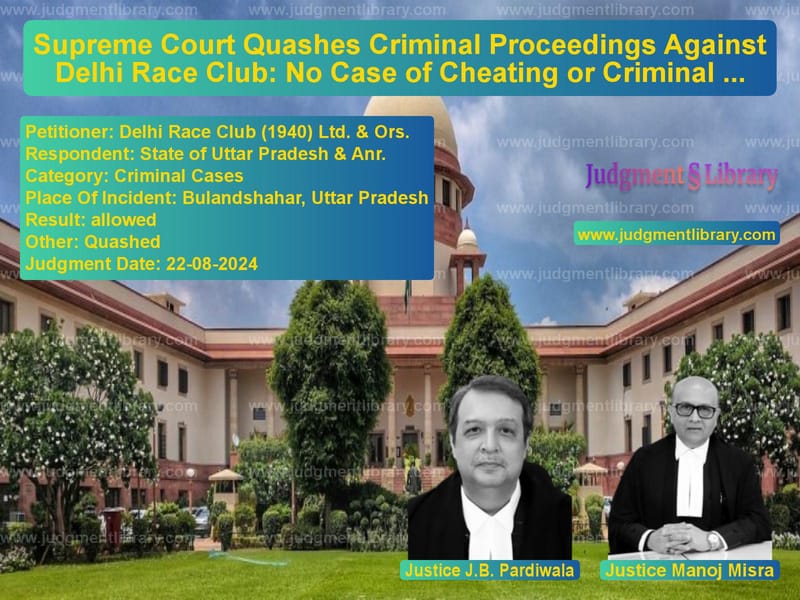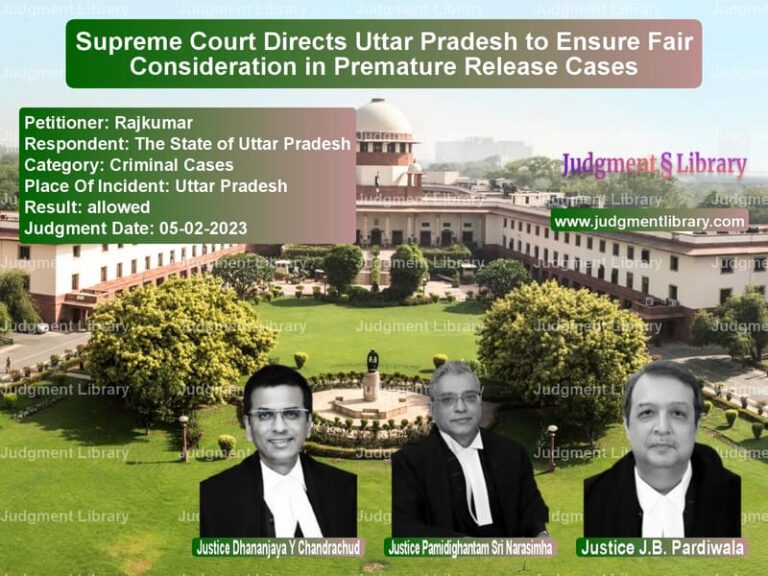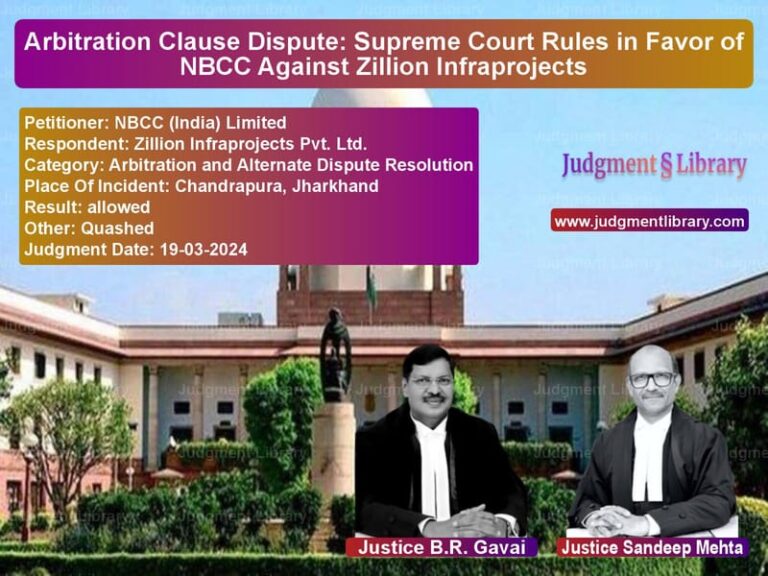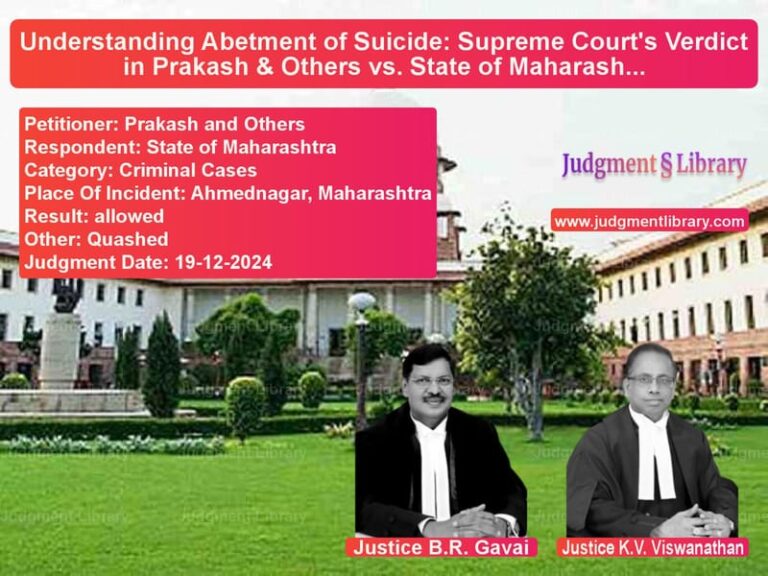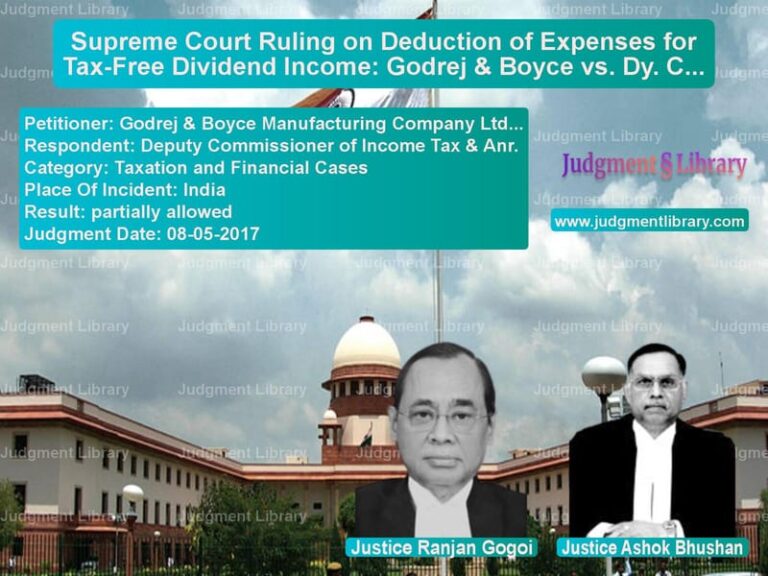Supreme Court Quashes Criminal Proceedings Against Delhi Race Club: No Case of Cheating or Criminal Breach of Trust
The case of Delhi Race Club (1940) Ltd. & Ors. v. State of Uttar Pradesh & Anr. pertains to allegations of cheating and criminal breach of trust against the club and its officials. The Supreme Court was tasked with determining whether a complaint regarding unpaid dues for horse feed constituted an offense under Sections 406 and 420 of the Indian Penal Code (IPC). In a significant ruling, the Court quashed the criminal proceedings, holding that the matter was purely civil in nature and that no criminal intent was established.
The dispute arose when the complainant, a supplier of horse feed, alleged that the Delhi Race Club and the Delhi Horse Trainers Association had defaulted on payments amounting to Rs. 9,11,434. Despite issuing legal notices and filing complaints with the police, the complainant failed to recover the amount, leading to the filing of a private complaint. The Additional Chief Judicial Magistrate (ACJM), Khurja, took cognizance and issued summons to the accused. The accused moved the High Court under Section 482 of the Code of Criminal Procedure (CrPC) for quashing the proceedings, but the High Court dismissed the plea. This led to an appeal before the Supreme Court.
Background of the Case
Facts Leading to the Dispute
- The complainant, Vipin Kumar Agarwal, supplied horse feed to the Delhi Race Club (1940) Ltd. for several years.
- In 1995, the club directed the complainant to issue invoices in the name of the Delhi Horse Trainers Association.
- Until 2017, payments were made regularly, but subsequently, dues amounting to Rs. 9,11,434 remained unpaid.
- The complainant approached the club and the association officials, but they denied liability and redirected him to each other.
- On failing to recover the dues, the complainant issued legal notices, which went unanswered.
- A criminal complaint was then filed under Sections 406, 420, and 120B IPC, alleging cheating and criminal breach of trust.
- The ACJM, Khurja, conducted an inquiry under Section 202 CrPC and issued summons against the accused.
- The accused moved the High Court for quashing the proceedings, but the plea was rejected.
Legal Issues Raised
Appellants’ Arguments
The appellants, including the Delhi Race Club and its officials, contended that:
- The dispute was purely civil in nature, involving non-payment of dues, and did not constitute a criminal offense.
- No entrustment of property had occurred, which is a necessary ingredient for criminal breach of trust under Section 406 IPC.
- There was no fraudulent or dishonest intention at the inception of the transaction, which is essential for an offense under Section 420 IPC.
- The complaint was filed as a pressure tactic to recover dues that should have been pursued through a civil suit.
- The High Court erred in failing to appreciate the distinction between a breach of contract and a criminal offense.
Respondents’ Arguments
The complainant argued that:
- The Delhi Race Club and the Delhi Horse Trainers Association acted in collusion to avoid payment.
- The club directed him to raise invoices in the name of the association but continued to receive the supplies.
- The refusal to pay despite repeated demands and legal notices showed dishonest intention.
- The officials deliberately misled him and induced him to supply goods without intending to pay.
- The criminal proceedings were justified as the accused committed fraud and breach of trust.
Supreme Court’s Observations
Distinction Between Civil and Criminal Liability
The Supreme Court emphasized that:
- For an offense under Section 406 IPC, there must be entrustment of property, which was absent in this case.
- For an offense under Section 420 IPC, the fraudulent or dishonest intention must exist at the inception of the transaction.
- Mere failure to pay for goods supplied does not amount to cheating or criminal breach of trust.
- The dispute pertained to recovery of dues, which should have been pursued through a civil suit.
Judicial Review of Summoning Orders
The Court reiterated that:
- Magistrates must apply their minds before issuing process and ensure that a prima facie case is made out.
- Summoning an accused is a serious matter and should not be done mechanically.
- Civil disputes should not be given a criminal color to pressurize the opposite party.
Legal Precedents Considered
The Court referred to several landmark judgments, including:
- Pepsi Foods Ltd. v. Special Judicial Magistrate (1998) – Held that summoning orders must reflect due application of mind.
- State of Gujarat v. Jaswantlal Nathalal (1968) – Clarified that mere non-payment of dues does not constitute criminal breach of trust.
- Hari Prasad Chamaria v. Bishun Kumar Surekha (1973) – Held that failure to fulfill a contractual obligation does not amount to cheating.
Final Judgment
The Supreme Court ruled that:
- The High Court’s order rejecting the quashing petition was erroneous and was set aside.
- The summoning order passed by the ACJM, Khurja, was quashed.
- The complainant was advised to seek redressal through civil proceedings.
This ruling reinforces the principle that civil disputes should not be transformed into criminal cases unless clear elements of criminal intent are present. It safeguards businesses and individuals from being subjected to undue criminal prosecution for contractual breaches.
Petitioner Name: Delhi Race Club (1940) Ltd. & Ors..Respondent Name: State of Uttar Pradesh & Anr..Judgment By: Justice J.B. Pardiwala, Justice Manoj Misra.Place Of Incident: Bulandshahar, Uttar Pradesh.Judgment Date: 22-08-2024.
Don’t miss out on the full details! Download the complete judgment in PDF format below and gain valuable insights instantly!
Download Judgment: delhi-race-club-(194-vs-state-of-uttar-prade-supreme-court-of-india-judgment-dated-22-08-2024.pdf
Directly Download Judgment: Directly download this Judgment
See all petitions in Fraud and Forgery
See all petitions in Bail and Anticipatory Bail
See all petitions in Judgment by J.B. Pardiwala
See all petitions in Judgment by Manoj Misra
See all petitions in allowed
See all petitions in Quashed
See all petitions in supreme court of India judgments August 2024
See all petitions in 2024 judgments
See all posts in Criminal Cases Category
See all allowed petitions in Criminal Cases Category
See all Dismissed petitions in Criminal Cases Category
See all partially allowed petitions in Criminal Cases Category

